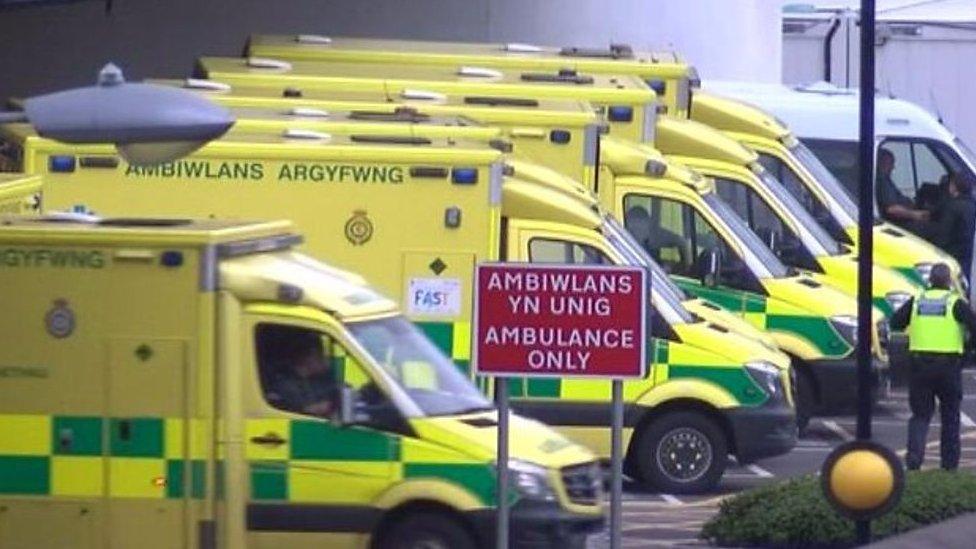Son's 200-mile London-Devon journey beats ambulance
- Published
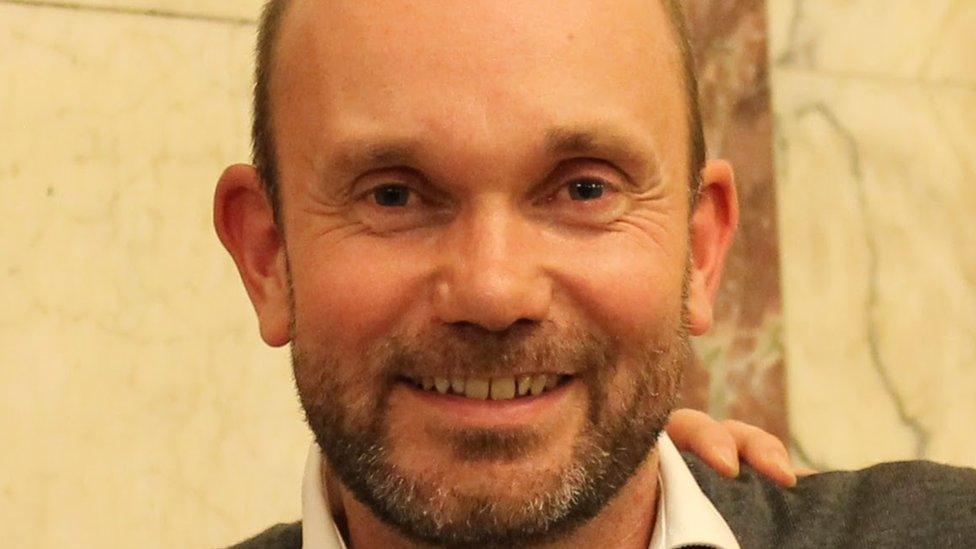
Mark Clements travelled from London to Exmouth before paramedics reached his mother
A man who travelled nearly 200 miles to reach his injured mother arrived before an ambulance reached her.
Mark Clements caught a bus, tube and two trains from London to Exmouth, Devon on Saturday after his 77-year-old mother fell and broke her hip.
The initial 999 call was made at 09:00 GMT but paramedics did not arrive until seven hours later.
South Western Ambulance Service apologised and said it was experiencing "an unprecedented rise in demand".
Mr Clements said he and his family - some of whom were waiting with his mother - were "appalled" by what happened.
"My mother was lying in an awkward position on a cold conservatory floor and was unable to move," he said.
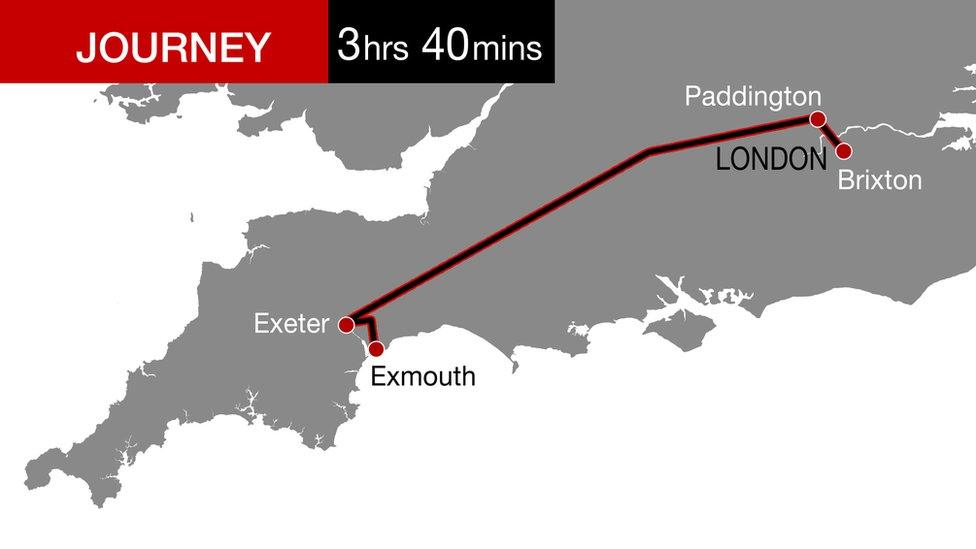
Mr Clements took three hours and 40 minutes to travel from London to Exmouth, arriving at his mother's home at 15:10, about 50 minutes before the ambulance crew.
He said relatives called 999 on six different occasions but it was seven hours before an ambulance arrived.
"An ambulance station is less than 10 minutes from my mother's home," he added.
When paramedics eventually arrived, Mr Clements said they were "equally appalled and astonished" at the delay.
"My mother is a very strong woman and it was heartbreaking to see her go through this experience," he added.
South Western Ambulance Service (SWASFT) said it had to prioritise more "serious incidents".
It said it was sorry it was "not able reach this patient sooner" but an assessment was carried out and there was considered to be "no immediate threat to life".
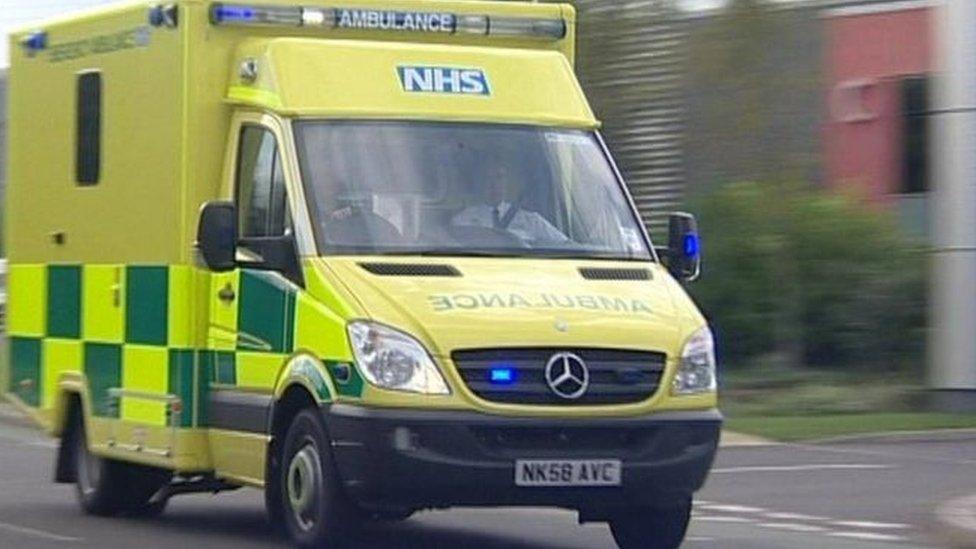
Mark Clements' mother was left on a "cold conservatory floor" after breaking her hip
Mr Clements' mother was initially classed as a category four case, which is considered "less urgent" and only requiring transport to a hospital.
Ambulance services in England took an average of one hour and 24 minutes to respond to such calls between April and December 2018, according to official figures, external.
SWASFT's average was two hours and 21 minutes, the longest in the country.
However its average response time for category one calls - for life threatening conditions - was seven minutes and 26 seconds, just one second behind the national average.
Mr Clements' mother had a hip operation on Sunday and is recovering in hospital.
- Published20 December 2018
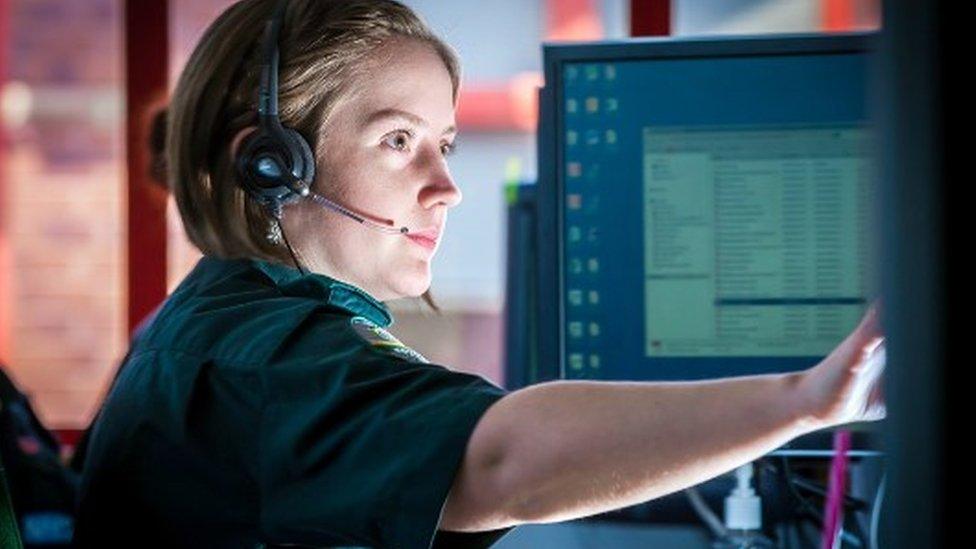
- Published2 December 2018
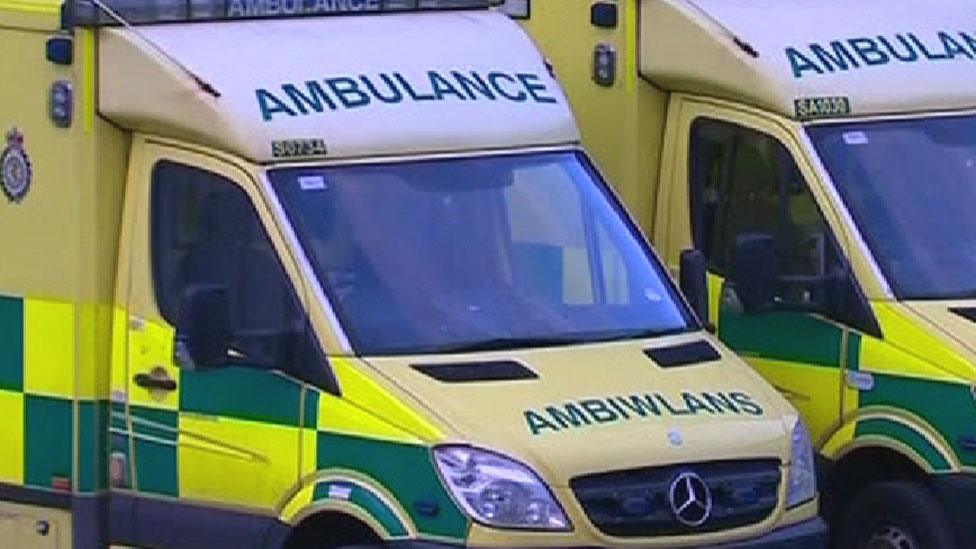
- Published23 August 2018
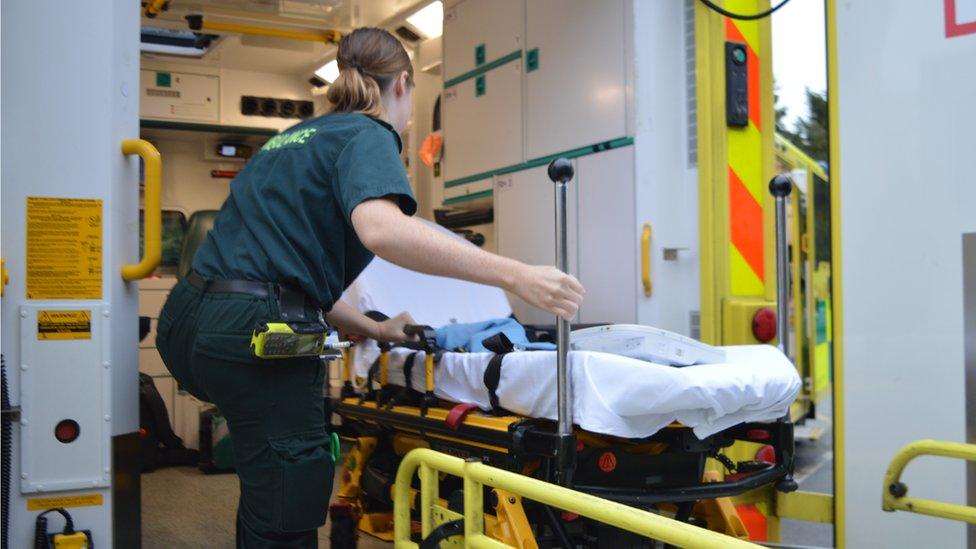
- Published10 April 2018
